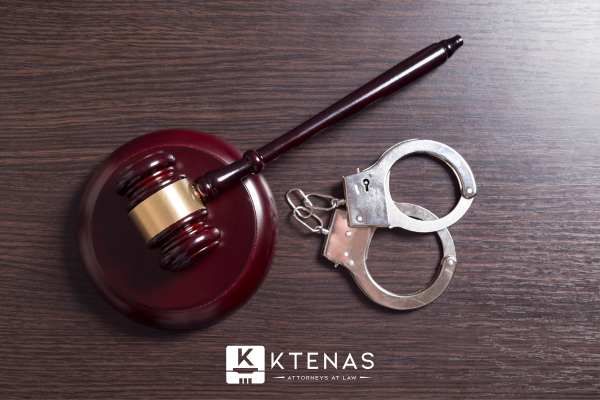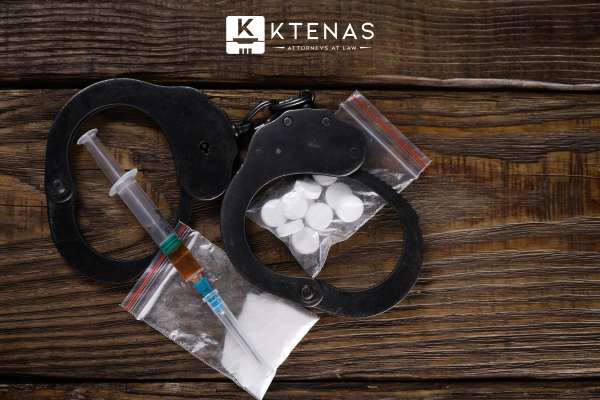Can You Legally Record Police Officers?
11/09/2025
Navigating the legal system after a drug-related arrest can feel overwhelming, but for eligible individuals, drug diversion programs in Chicago offer a pathway to accountability and rehabilitation without the harsh consequences of a criminal conviction. These programs focus on addressing the root causes of substance use through treatment, counseling, and community support, allowing participants to rebuild their lives. Understanding how these programs work, their requirements, and their benefits is essential for anyone facing drug charges.
If you or a loved one has been charged with a drug-related offense in Chicago, exploring diversion programs could be the right step. These alternatives provide a second chance while helping to avoid the long-term impacts of a criminal record. Call an experienced Chicago defense attorney today at (312) 756-8652 to learn if you qualify and how to get started on the path to recovery and a brighter future.
Drug diversion programs in Chicago aim to provide alternatives to incarceration for individuals charged with drug-related offenses. These programs often focus on rehabilitation and reducing recidivism. Here are some common types:
Drug courts are specialized court systems designed to address drug-related offenses through treatment rather than punishment. Participants typically undergo a combination of counseling, drug testing, and court supervision. Successful completion can result in a reduction or even dismissal of drug charges.
These programs allow eligible defendants to avoid a conviction by completing certain requirements, such as drug treatment, counseling, or community service. If all conditions are met, charges may be dropped.

Pretrial diversion programs are designed for first-time or low-level offenders. Participants agree to treatment or other rehabilitative measures before trial, and successful completion prevents formal prosecution.
Each program varies in its requirements and outcomes, but all share the goal of prioritizing rehabilitation over punitive measures. To determine the best option, working with a drug defense lawyer is crucial.
Drug diversion programs offer several benefits, both for individuals charged with drug-related offenses and for society as a whole. These programs are designed to provide a more rehabilitative approach compared to traditional criminal justice processes. Here are some key benefits:
One of the most significant advantages of completing a drug diversion program is the potential to avoid a criminal conviction. If you successfully complete the program, the court may dismiss the charges or reduce the severity of the penalties. This helps prevent a criminal record that could negatively impact your future employment prospects, housing options, and other aspects of your life.
Drug diversion programs typically include access to treatment, therapy, and counseling, which can address underlying substance abuse issues. These programs aim to help participants overcome addiction, reduce the likelihood of reoffending, and improve their overall well-being. This rehabilitative approach is often more effective than punitive measures in promoting long-term recovery.
By completing a diversion program, you may be able to avoid more severe criminal penalties, such as jail time or hefty fines. Many diversion programs allow individuals to complete community service, drug education, or treatment instead of facing lengthy sentences. This can also help reduce the burden on the court system by diverting cases from the traditional criminal justice process.
Successful completion of a diversion program can significantly improve your chances of achieving a positive legal outcome. For instance, if you are facing charges that would normally result in a conviction, completing the program might result in your charges being dismissed or reduced. In some cases, a judge may even allow you to avoid a trial altogether if you comply with the program’s requirements.
While participating in a drug diversion program may require some financial investment, the overall costs tend to be lower than those associated with going through a trial or serving time in jail. Additionally, avoiding a conviction may prevent future legal expenses or financial burdens related to having a criminal record.
Drug diversion programs are designed to address the root causes of criminal behavior, such as substance abuse, rather than simply punishing the offender. This approach has been shown to reduce the likelihood of reoffending, helping to break the cycle of criminal behavior and promote long-term recovery.

Overall, drug diversion programs offer a comprehensive and supportive path to recovery and legal resolution. They allow individuals to address their substance abuse issues while avoiding the long-term consequences of a criminal conviction.
In some cases, the severity of the drug-related offense can influence the length of the diversion program. For example, someone facing a felony drug charge may be required to complete a longer program compared to someone charged with a misdemeanor offense.
Your progress in the program plays a significant role in determining how long it lasts. If you successfully comply with the program’s requirements—such as attending counseling, submitting to drug tests, and avoiding relapse—the program may be completed in a shorter time. However, if you need additional support or experience setbacks, the program could be extended.
Different drug diversion programs have varying requirements, such as counseling sessions, community service, and drug testing. The number of requirements you must fulfill can impact how long the program lasts. Programs that involve more intensive treatment or longer education components may take longer to complete.
The court will typically monitor your progress and may adjust the length of the program based on your compliance and individual needs. If you successfully complete all the necessary steps, the court may allow you to exit the program early. Conversely, failure to comply may result in the program being extended or even terminated.
Ultimately, while most drug diversion programs last from 6 months to 1 year, the exact duration is tailored to each individual’s circumstances, and the court will adjust timelines as needed based on progress and compliance with program rules.
Drug diversion programs in Chicago can provide a valuable opportunity for individuals to address the underlying issues related to substance use and avoid a criminal conviction. However, successfully navigating these programs requires a clear understanding of their requirements and your eligibility.
If you’ve been charged with a drug-related offense hiring a Chicago drug defense attorney is the best way to protect your future. Reach out today to learn more about your options and how a diversion program could help you take control of your life while avoiding a lasting criminal record.

